Sri Lankans protest near president’s residence
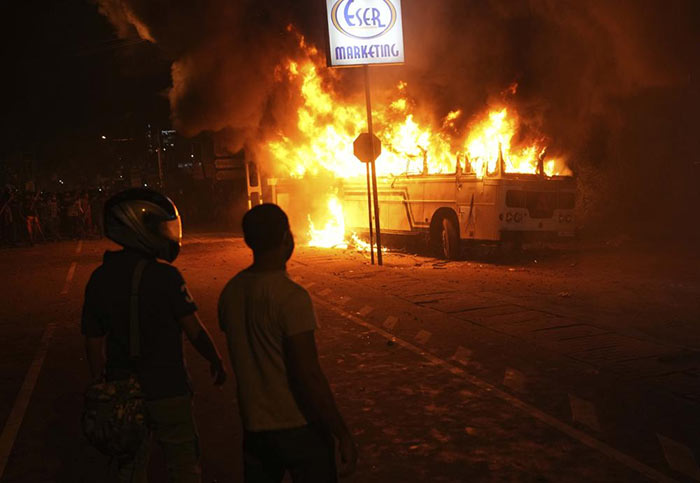
(AP Photo / Eranga Jayawardena)
Sri Lanka police fired tear gas and a water canon on thousands of people protesting Thursday near the private residence of the country’s president, demanding his resignation as the Indian Ocean island nation struggles with its worst economic crisis.
Police later enforced curfew in several suburban areas of the capital, Colombo because the protests wouldn’t subside.
Protestors demonstrated, shouting slogans condemning the long power cuts and shortages of essentials, along the roads leading to President Gotabaya Rajapaksa’s private residence at Mirihana, on the outskirts of the capital Colombo.
Demonstrators also demanded Rajapaksa to step down, with shouting slogans “Go home, Gota go home.”
They stoned two army buses halted by police as a shield to prevent the protestors entering the road leading to Rajapaksa’s residence and set fire to one of them. They also turned back a fire truck that rushed to douse the fire.
At least one person was severely injured in the leg when police fired tear gas cannisters directly at protesters to stop them stoning a bus.
A foreign exchange crunch in Sri Lanka has led to a shortage of essential goods such as fuel and cooking gas, and power cuts now last up to 13 hours a day. People wait in long queues to get fuel
One of the protestors Dulaj Madhushan, 30, lamented over the 13-hour power cut and asked: “How can people earn a living?”
“This is not a political one, but a protest led by people. They took people for granted. Now you can see peoples’ power,” he said.
Another protester, Asanka Dharmasinghe, a 37-year old carpenter, said he has been running a carpenter shed, employing four people and paying them LKR 3500 (US $12) each per day but he is unable to cover the costs because he only has two hours of electricity to work.
“I spent LKR 14,000 (US $ 48) on salaries every day, but how much I can earn for a day? My daughter is sitting for exams, but there is no paper,” he said.
The protesters appeared voluntary and without a leader. Residents of this middle class neighborhood including many women who would normally not participate in street protests were seen telling police that they were fighting for them too.
Armed soldiers with assault rifles were stationed nearby.
After the protest, police imposed curfew in parts of Colombo and suburbs until further notice, said police spokesman Nihal Thalduwa.
He asked people in the areas where the curfew was imposed to remain at homes, warning that those violate the curfew will be dealt strictly according to the law. He also said motorists will not be allowed to travel through those areas and asked the public to use alternative routes.
Angry protesters also gathered around the Mirihana police station accusing the police of trying to protect the corrupt. Police there deployed tear gas.
Sri Lanka’s foreign reserves are dwindling at a time when it faces huge debt obligations. The country’s struggle to pay for imports has caused the shortages.
Residents are enduring daily power cuts due to a shortage of fuel to operate the generating plants and dry weather has sapped hydropower capacity.
Sri Lanka’s economic woes are blamed on successive governments not diversifying exports and relying on traditional cash sources like tea, garments and tourism, and on a culture of consuming imported goods.
The COVID-19 pandemic dealt a heavy blow to Sri Lanka’s economy, with the government estimating a loss of $14 billion in the last two years.
Sri Lanka also has a severe foreign debt problem after borrowing heavily on projects that don’t earn money. Its foreign debt repayment obligations are around $7 billion for this year alone.
According to the Central Bank, inflation rose to 17.5% in February from 16.8% a month earlier. The numbers are expected to rise even further in the coming months because the government has allowed the local currency to float freely, resulting in higher prices for fuel and other goods.
Separately on Thursday, the country’s Catholic bishops called for unity among the country’s politicians, warning that the island is fast becoming a failed state amid its most severe economic crisis.
All governments to date are responsible in varying degree for the crisis the Catholic Bishops’ Conference in Sri Lanka said in a statement, adding that the government and the opposition must adopt a conciliatory approach without blaming each other.
The bishops called on Catholic institutions and individuals to provide assistance to the most affected groups.
(Source: AP)
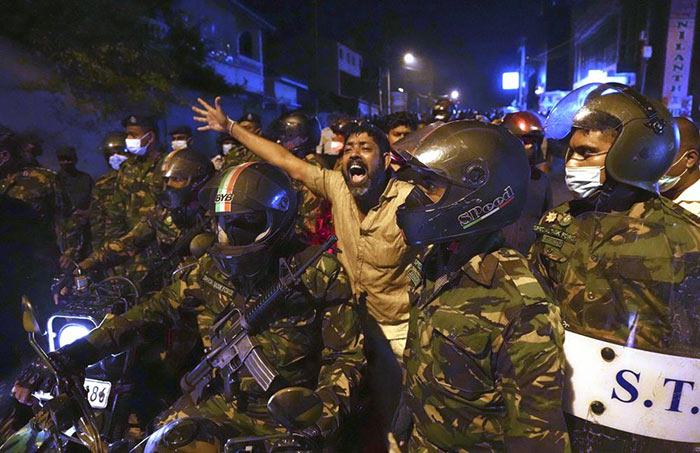
(AP Photo / Eranga Jayawardena)
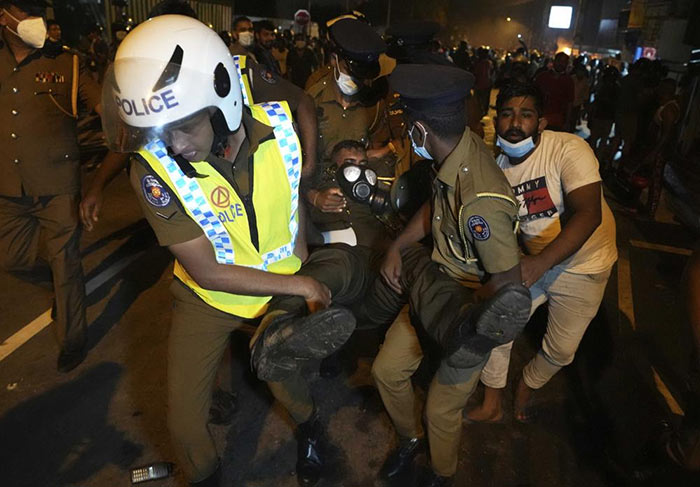
(AP Photo / Eranga Jayawardena)
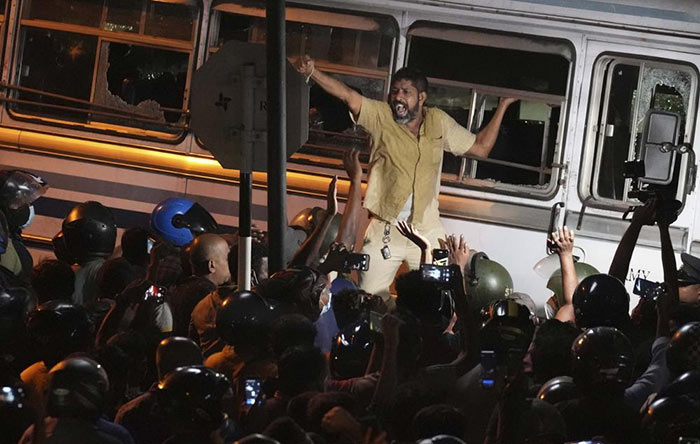
(AP Photo / Eranga Jayawardena)
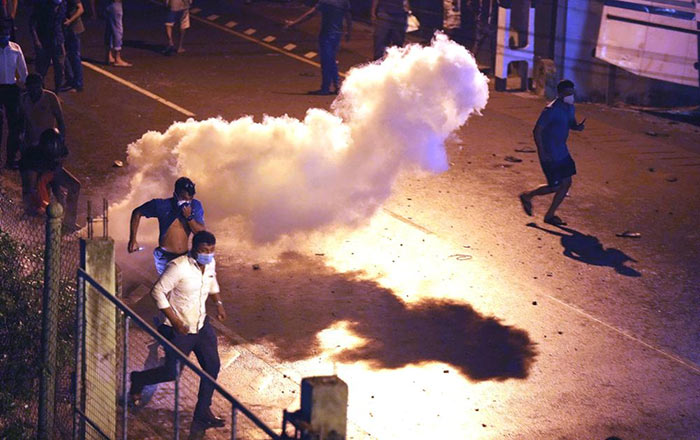
(AP Photo / Eranga Jayawardena)
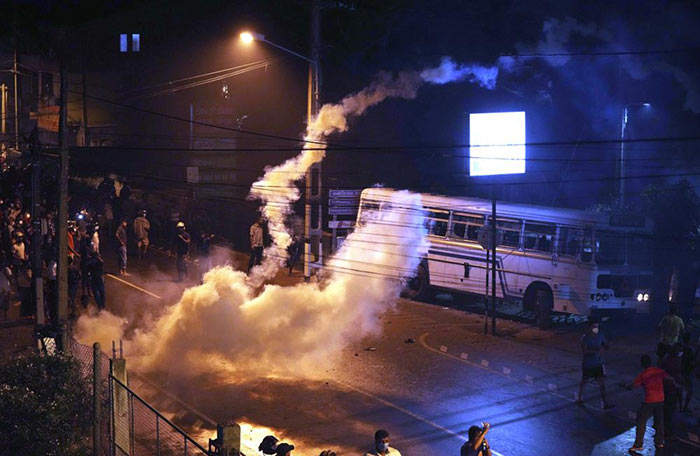
(AP Photo / Eranga Jayawardena)
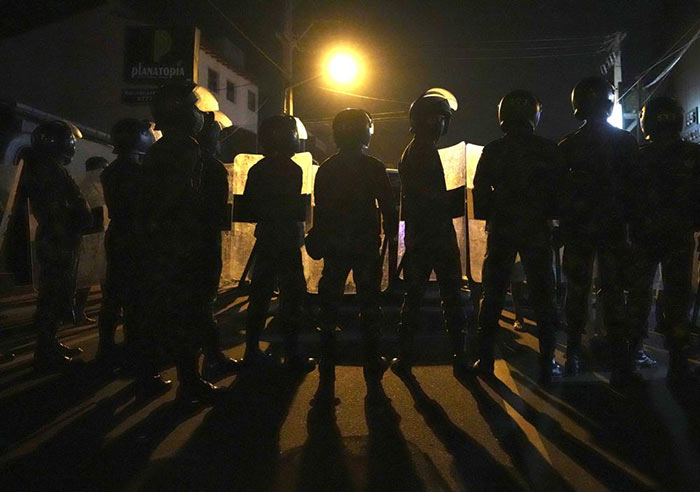
(AP Photo / Eranga Jayawardena)
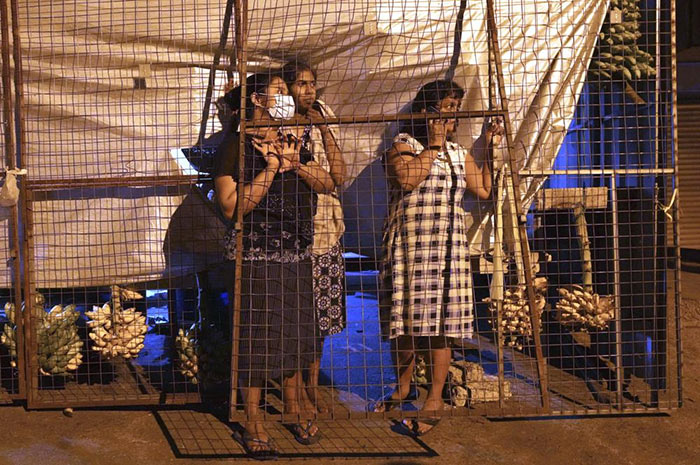
(AP Photo / Eranga Jayawardena)
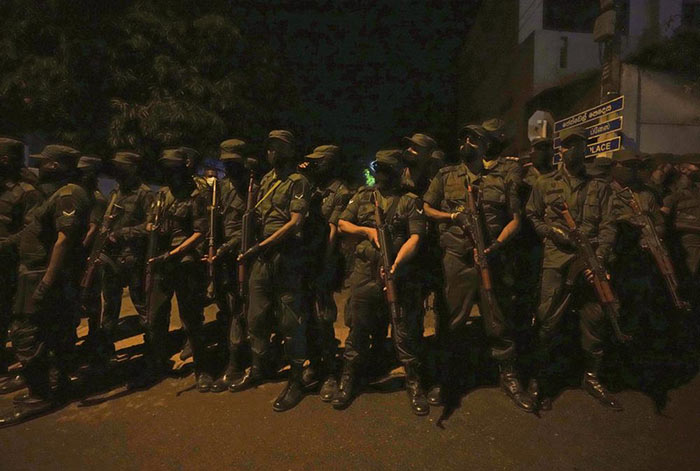
(AP Photo / Eranga Jayawardena)
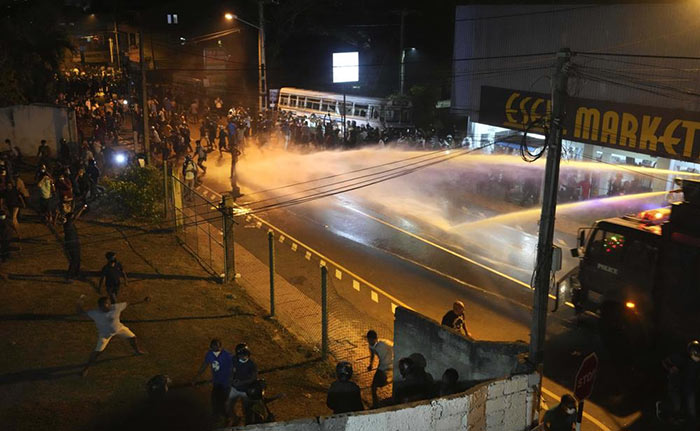
(AP Photo / Eranga Jayawardena)
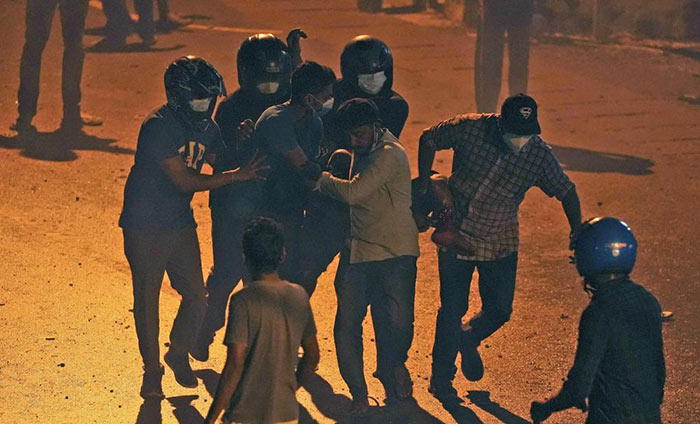
(AP Photo / Eranga Jayawardena)
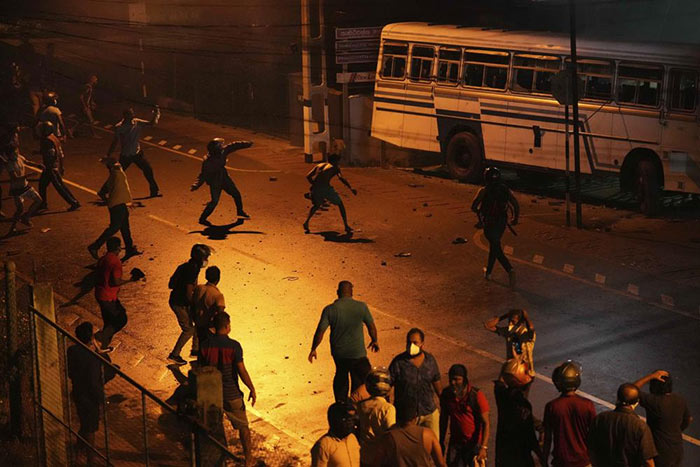
(AP Photo / Eranga Jayawardena)
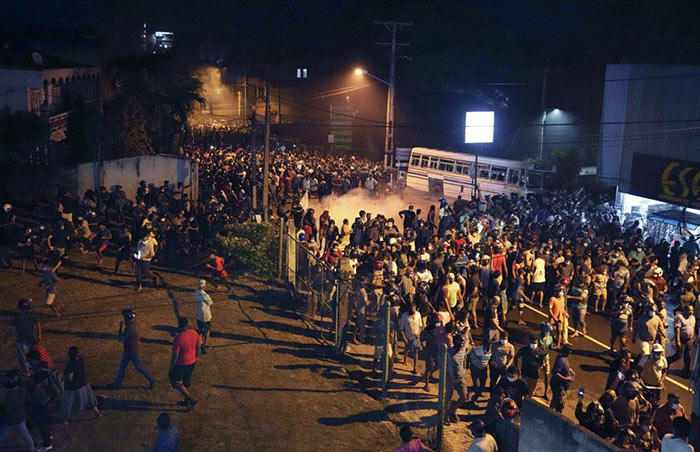
(AP Photo / Eranga Jayawardena)
Latest Headlines in Sri Lanka
- Sri Lanka to operate immigration department 24/7 to speed up passport issuance February 5, 2025
- Sri Lanka announces new paddy purchase prices from February 6, 2025 February 5, 2025
- Sri Lanka launches national survey on toque macaque February 5, 2025
- Sri Lankan MPs’ meal price jumps over four times from Rs. 450 to Rs. 2,000 February 5, 2025
- Sri Lanka to cut water tariffs by up to 30% February 5, 2025



Good. Martial law or curfew should be imposed. Protesting for what? Against tourist not coming to SL during COVID pandemic or price of oil increase by 4-5 fold in the world market?
No Indra Akke,
The protest is about continuing with daily domestic life and keeping the dinner table alive with food for the children.
The thieves in the ruling classes are shaken, bags packed, ready to leave, in Shangrila Hotel; it is the middle class which is protesting; soon, a lower class of protectors will take to the streets to loot the Supermarkets which have rotten food in their fridges, turned off due to the 13 hour power cuts.